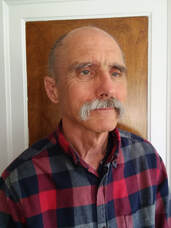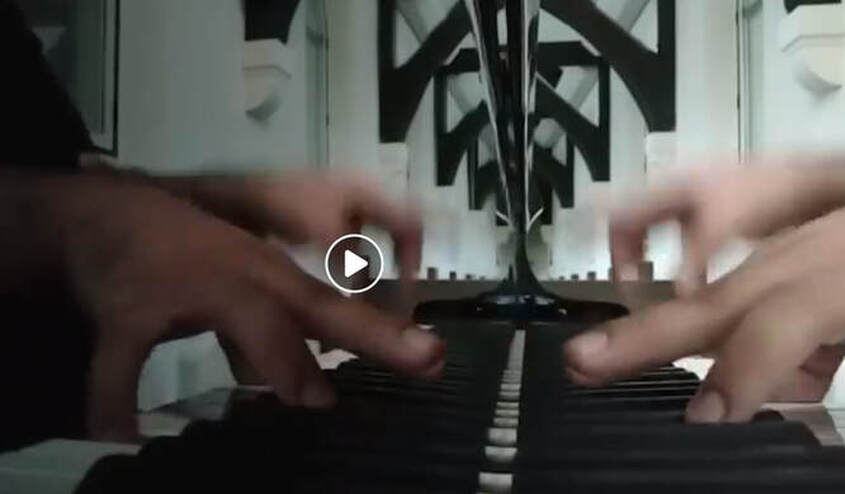Justice for George: Community Resources and Message from Unity's Beloved Community Staff Team5/29/2020 Where to donate money and resources (locally organized ground support):
Current needs and information about direct action/protests:
Anti-Racism Learning Resources: CLICK HERE for Lift Every Voice and Sing, today's music message from Ahmed Anzaldúa.
0 Comments
 Ray Wiedmeyer, On Behalf of the Beloved Community Communications Team The Intercultural Development Inventory (IDI, https://idiinventory.com), developed by Mitchell R. Hammer, professor of international peace and conflict resolution at American University, assesses intercultural competence as the capability to shift cultural perspective and appropriately adapt behavior to cultural differences and commonalities. To help us grow our ability to be an anti-racist, multicultural spiritual community, a number of key ministry groups at Unity Church are being invited to take the IDI. As part of a series of articles about the IDI, Ray Wiedmeyer, a member of the Beloved Community Communications Team, shares what he learned from the IDI and how he determined to increase his cultural competency. If you are interested in taking the IDI, please email Drew Danielson at [email protected]. Back in the early 1970s, I spent a semester abroad in Malaysia as a college student. Classes consisted of Malay language study, Eastern Religions, a hands-on Asian Textile course, Psychology of Adjustment and included a month of travel in Japan, Thailand, and Taiwan. That semester of college was one of the most exciting of my whole college education. I was suddenly immersed in a world that was totally different from my world back in America. Everything from food, to housing, to government, to religion was totally “not” the culture I had grown up in or was used to. My return home months later was filled with culture shock. I suddenly saw things in my environment that I had never really seen before. In 2016 I took the IDI (Intercultural Development Inventory) for the first time at Unity Church as part of the Mid-America Mosaic Makers Conference. Prior to taking it, I would have told you that I thought I was a pretty culturally well-rounded person. After all, not only had I traveled world-wide in the years since college, but I also had friends and acquaintances from a variety of cultures. It was a surprise then when the IDI rated my intercultural skills as firmly in the center of the Intercultural Development Continuum, also known as Minimization. It left me in a bit of a quandary. What was I missing? The competency they spoke of was something I wished I had. I saw it as a necessity if we really want a world where everyone is treated as an equal and true justice is achieved. Our Unitarian principles are just words if I’m not working on a becoming a better me; a person moving in the world in such a way as to not ignore or negate others. After taking the IDI the first time, I set up a one-on-one conversation with a qualified administrator. We went over those first results and she suggested some activities I might work on. One of those activities, I remember, was keeping an intercultural journal. This was a place where I “might reflect on cultural differences and commonalities I observe in my daily interactions with people from other cultural groups.” I remember doing this for several months and feeling more and more aware of those interactions as they came up. I also continued to volunteer at Mano a Mano, where work activities here in the U.S. and my occasional trips down to Bolivia gave me frequent real-life practice interacting with that culture. I began to look for, and engage more fully in, the cross-cultural friendships I already had. I took part in events sponsored by Unity Church where I was immersed in the discussion of white privilege. I began to read more about American racial history and I traveled to Africa to learn more about slavery. I found myself becoming more and more conscious of the white culture I was constantly swimming in and how it kept me from seeing and acknowledging that there were other ways of seeing the world. And last but not least, I worked on staying present when my cultural view of the world was being questioned or challenged. Recently, I took the IDI again. I believe it was the third time and I was glad to see that I had made some measurable progress. I believe it was what I had been working on the past four to five years that had moved me on the continuum, hopefully making me more competent in my interactions with other cultures. Yes, I’ve made progress but I’ve also become aware of how much I still need to learn, so I am not about to end this life-long journey anytime soon. |
Topics
All
Beloved Community ResourcesUnity Justice Database
Team Dynamics House of Intersectionality Anti-Racism Resources in the Unity Libraries Collection Creative Writers of Color in Unity Libraries The History of Race Relations and Unity Church, 1850-2005 Archives
July 2024
Beloved Community Staff TeamThe Beloved Community Staff Team (BCST) strengthens and coordinates Unity’s antiracism and multicultural work, and provides opportunities for congregants and the church to grow into greater intercultural competency. We help the congregation ground itself in the understanding of antiracism and multiculturalism as a core part of faith formation. We support Unity’s efforts to expand our collective capacity to imagine and build the Beloved Community. Here, we share the stories of this journey — the struggles, the questions, and the collaborations — both at Unity and in the wider world.
The current members of the Beloved Community Staff Team include Rev. Kathleen Rolenz, Rev. KP Hong, Rev. Lara Cowtan, Drew Danielson, Laura Park, Lia Rivamonte and Angela Wilcox. |
